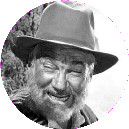 Fort Apache
(1948)
Fort Apache
(1948)
Below are links to reviews and further info from selected film sites. Links surrounded by a solid border lead directly to a page about this movie on that site. Links surrounded by a dashed border lead to a Google search for this exact movie title on that site. You may find it more efficient to open these links in separate browser tabs. Click Show More / All / Default to see more available links or return to the standard default selection. More (or fewer) choices of links can be selected via Options, and you can save your personal defaults (requires login).
Fort Apache is a 1948 American Western film directed by John Ford and starring John Wayne and Henry Fonda. The film was the first of the director's "cavalry trilogy" and was followed by She Wore a Yellow Ribbon and Rio Grande, both also starring Wayne. The screenplay was inspired by James Warner Bellah's short story "Massacre". The historical sources for "Massacre" have been attributed both to George Armstrong Custer and the Battle of Little Bighorn and to the Fetterman Fight. The film was one of the first to present an authentic and sympathetic view of the Native Americans involved in the battle. The film was awarded the Best Director and Best Cinematography awards by the Locarno International Film Festival of Locarno, Switzerland. Screenwriter Frank S. Nugent was nominated for best screenplay by the Writers Guild of America.

